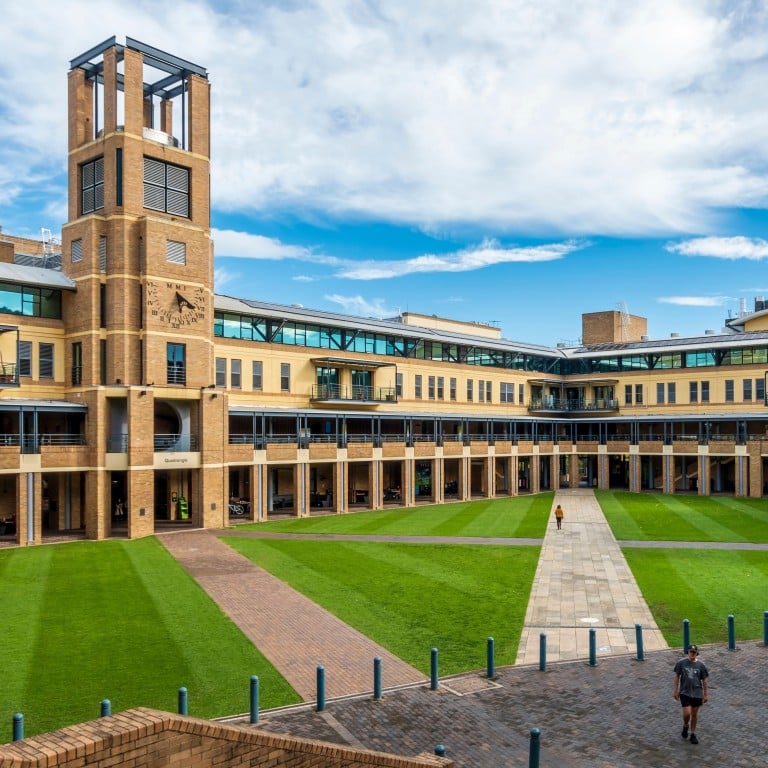
Australian university takes Hong Kong institution’s lead, tightens mainland admission checks
- University of New South Wales says applicants must submit official reports as additional proof for mainland Chinese academic qualifications
A leading university in Australia has required applicants to submit official reports as additional proof for mainland Chinese academic qualifications amid a surge in fake documents, after a Hong Kong institution recently cracked down on the trend.
A spokesman for the University of New South Wales (UNSW) told the Post that it introduced the measure this year after discovering some applicants had submitted bogus papers, adding it upheld very strict admission standards.
“As application volumes have increased over the past few years, we have seen a correlating rise in fraudulent documents submitted to the university,” he said. “Fraudulent documents have only been submitted in a handful of cases.”
The University of Hong Kong (HKU) earlier ramped up admission checks after discovering some mainland students had applied using fraudulent overseas academic qualifications.
Over on the mainland’s answer to Instagram, Xiaohongshu, some education consultants said the saga uncovered at HKU had spread to other overseas universities.
UNSW said candidates with mainland-based qualifications would need a verification report from the mainland’s Centre for Student Services and Development (CSSD).
The centre is the only institution authorised by the mainland government that can verify higher education qualification certificates
“The CSSD report is only relevant for Chinese qualifications and is not required if the qualification is not from [mainland] China,” the spokesman noted.
The Australian university added that it conducted similar document authenticity checks for applicants from other countries.
An UNSW email to student enrolment agencies in July that was circulated online said the stringent checks were introduced due to an increase in fake documents being used in applications.
In the last financial year, the number of mainland students granted visas to study at a higher education level in the country reached 80,024, an increase from 79,902 in 2021-22.
About 68,000 Chinese students were granted visas in 2018-19 before the pandemic, according to the Australian’s Department of Home Affairs.
The most popular destination for higher education programmes was New South Wales, with 38,951 visa applications, almost half of last year’s total. Both figures are record highs.
Locally, HKU’s business school last month revealed that about 30 mainland students, mostly holding overseas universities’ qualifications, were found to have used fraudulent qualifications to secure master’s programme places.
The school’s dean, Cai Hongbin, added the number using fake degrees might rise to as many as 100 eventually.
Students using the fake documents risk facing disqualification on their offers, the business school said earlier.
In July, Hong Kong police arrested two mainland women in connection with the fake degree scandal at HKU.

A spokeswoman for HKU’s business school said it would enhance the verification of the academic qualifications of applicants, including requiring some to attend interviews.
“In addition to submitting graduation certificates and academic transcripts, applicants will also be required to provide academic certificates issued by China Higher Education Student Information under the Ministry of Education of China’s Centre for Student Services and Development or other credible academic accreditation platforms,” she said.
Willy Kwong, general manager of AAS Education Consultancy, said he believed the new measure by UNSW was also linked to the Australian government’s goal to reduce the number of international students next year.
“All along, there have been some cases of fraudulent academic qualifications in the admissions process,” he said. “Thus, universities are now using a variety of measures to curb the number of international students, to prepare for the cap.”
Australia’s Labor government has vowed to cap the number of international students in the tertiary education sector.
Treasurer Jim Chalmers said in May that international student enrolments in the sector had grown without being matched by an increase in student housing supply.
“We will limit how many international students can be enrolled by each university based on a formula, including how much housing they build,” he said at the time, adding the new cap would be in effect next January.

